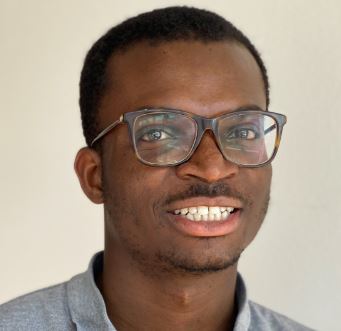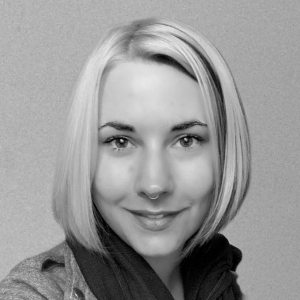CAG Regenerative Medicine for Urogenital Surgery and Fertility (SURF)
The CAG-SURF aims to provide faster and better treatment for patients suffering from rare conditions in the urinary tract and genitals, also known as the urogenital organs. The CAG will be developing new surgical strategies and methods for improving tissue healing and regeneration with a view to healing or replacing damaged or sick organs, tissue and cells. For this purpose, the CAG will be using techniques for producing artificial organs, tissue reconstruction and therapeutic stem cells.
The CAG focusses on reconstruction of the urogenital organs and restoring fertility in paediatric and adult patients. Both areas meet an unmet clinical need for advanced knowledge at the cellular level.
Regenerative medicine for reconstructive urogenital surgery
Urogenital organ defects may have severe negative effects on the bladder function, including urinary incontinence, risk of urinary tract infection and secondary kidney failure. These patients often experience reduced quality of life, and some suffer from reduced mobility and experience a loss of autonomy as their need for help involves a sensitive, intimate part of the body. Severe birth defects of e.g. the bladder, penis, testicles and vagina are examples of conditions where lack of urogenital tissue may cause severe disease and repeated attempts at surgical reconstruction at human as well as health financial costs.
Regenerative medicine for surgical fertility preservation
Paediatric patients with birth defects or genetic diseases may have a high risk of reduced fertility (infertility). Infertility is a growing problem in Denmark and other countries, and the WHO estimates that more than 48 million couples and 186 million individuals globally suffer from infertility. Inability to conceive may greatly affect the individual’s sense of identity and lead to stress, sorrow, guilt and depression. Loss of fertility is a traumatic experience, as most people wish to be able to have children biologically.
In men, infertility is often the result of sperm issues. In women, infertility can be a result of abnormalities in the ovaries, uterus, uterine tube or endocrine system.
Infertility may also be a result of cancer treatment, though, as chemotherapy and radiation can destroy or reduce the quality of the gametes. Survivors of childhood cancer risk becoming permanently infertile. Especially boys who have survived childhood cancer have a high risk of infertility of around 23-30 per cent, as they are unable to produce and deposit mature sperm cells before reaching puberty.
The CAG-SURF cooperates with experts in paediatric surgery, paediatrics, urology, male and female infertility, foetal medicine, biomechanics, biomaterials science, cell biology and genetics. The researchers thus represent a series of scientific disciplines and areas of medical expertise which joined together can make a difference for patients suffering from urogenital diseases.
In order to share knowledge on new research results and ensure implementation in clinical practice, the CAG will establish organisational and educational platforms supplemented with collaborations with industry partners within production. Furthermore, it will make new knowledge available to students, health professionals and patients through e.g. theoretical and clinical seminars, webinars and publications.
Strengthened research, communication and development of techniques within regenerative medicine may lead to significantly improved organ function, treatment and quality of life for patients suffering from various rare conditions.
CAG Chairs
-
Magdalena Fossum Professor, clinical consultant, Department of Paediatric Surgery, Rigshospitalet, The Capital Region of Denmark
-
Johan Ulrik Lind Associate professor, Department og Health Technology, Technical University of Denmark
CAG Junior Chairs
CAG key members
-
 Niels Klarskov Professor, Herlev Hospital
Niels Klarskov Professor, Herlev Hospital -
 Maria Celeste Aragona Associate professor, Human Stem Cell Biology LaB, University of Copenhagen
Maria Celeste Aragona Associate professor, Human Stem Cell Biology LaB, University of Copenhagen -
Jens Fedder Professor, clinical consultant, Department of Gynaecology and Obstetrics, Odense University Hospital, Region of Southern Denmark
-
Olav Pedersen Professor, clinical consultant, Center for Fetal medicine and Pregnancy, Rigshospitalet, The Capital Region of Denmark
-
Jørgen Thorup Professor, clinical consultant, Department of Paediatric Surgery, Rigshospitalet, The Capital Region of Denmark
-
Dina Cortes Professor, clinical consultant, Department of Paediatric and Adolescence Medicine, Hvidovre Hospital, The Capital Region of Denmark
-
Jens Sønksen Professor, Clinical Consultant, Department of Urology, Herlev and Gentofte Hospital, The Capital Region of Denmark
-
Claus Yding Andersen Professor, Laboratory of Reprductive Biology, Rigshospitalet, The Capital Region of Denmark
-
Fatemeh Ajallouleian Assistant professor, Department of Heath Technology, Technical University of Denmark
-
Pernilla Stenström Associate professor, clinical consultant, Department of Paediatric Surgery, Lund University, Region Scania
-
Eva Hoffmann Prorektor, Professor, Department of Cellular and Molecular Medicine, DNRF Center for Chromosome Stability, University of Copenhagen
CAG non-key members
-
-
-
-
-
-
 Maggie Ruding MSC, PHD student
Maggie Ruding MSC, PHD student -
 Mahboobeh Amoushahi MSC, PHD, senior researcher
Mahboobeh Amoushahi MSC, PHD, senior researcher -
 Eugene Padi MSC, PHD student
Eugene Padi MSC, PHD student -
 Anastasia MD, PHD student
Anastasia MD, PHD student -
 Ioanna Kaklamanou PHD student
Ioanna Kaklamanou PHD student -
Our research projects
CAG PhD project

Maggie Ruding
The CAG awarded an additional fellowship to DTU PhD Student, Margrethe (Maggie) Ruding. The project aims to create 3D-printined, autologous implants to use in a single-stage surgical procedure treating urogenital malformations. The collaboration between DTU and Rigshospitalet drives the CAG mission to further development, collaboration, and dissemination of novel techniques in regenerative medicine.
Project start: 01-10-2023
CAG PhD project

Eugene Padi
Eugene’s project aims to investigate the cellular and molecular mechanisms underpinning urogenital malformations in pediatric patients. While several studies have described the histological and anatomical changes associated with urogenital malformations, the underlying molecular mechanism remains elusive. With support from the CAG, we hope to gain a deeper understanding of the prerequisites for normal tissue function, provide conclusive evidence for improved tissue repair and engineering, and unravel the complexities surrounding urogenital malformations.
Project start: 04-09-2023
CAG PhD project

Amy V. Kaucher
The CAG recently awarded its first one-year Research Fellowship to incoming KU PhD Student, Amy V. Kaucher. Her proposal is rooted in defining the molecular profile of in vitro maintained or generated gametes. Better understanding in vitro means of female and male fertility restoration and preservation is critical to the aim of the CAG by increasing our basic knowledge of these systems and improving clinical outcomes for patients.
Project start: 01-01-2022.
At the moment there are no job vacancies in CAG SURF.
Contact us
If your inquiry concerns your symptoms, medical history and treatment, please contact your private doctor.







